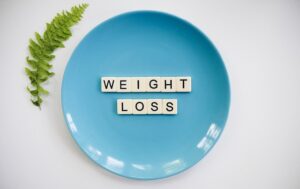## Introduction
When it comes to weight loss, many people focus solely on shedding unwanted fat. However, the process of losing weight is more complex than just burning fat. In fact, weight loss often involves a combination of fat loss, muscle loss, and water weight reduction. Understanding these different types of weight loss is crucial for developing effective and sustainable weight loss strategies. In this article, we will delve into the intricacies of water weight, muscle loss, and fat loss, and explore how they contribute to overall weight loss.
The Role of Water Weight in Weight Loss
Water weight, also known as fluid retention or edema, refers to the excess water that the body retains. It can cause temporary weight fluctuations and affect how you look and feel. When you start a diet or exercise regimen, you may notice a significant drop in weight during the initial days. This is often attributed to the loss of water weight.
Understanding Glycogen Stores and Water Retention
During the first few days of a calorie deficit, the body primarily relies on its glycogen stores for energy. Glycogen is a form of stored glucose (sugar) that comes from the carbohydrates you consume. As the body breaks down glycogen, it releases a significant amount of water that was bound to the carbohydrate molecules. This explains why some individuals experience rapid weight loss at the beginning of their weight loss journey.
The Impact of Reduced Carbohydrate Intake on Water Weight
When you consume fewer carbohydrates, your body’s glycogen stores become depleted, leading to a reduction in water retention. This is why low-carb diets, such as the ketogenic diet, can result in significant initial weight loss due to the depletion of glycogen stores and the associated water loss.
Dealing with Water Weight Fluctuations
It’s important to note that water weight fluctuations are temporary and not indicative of true fat loss. These fluctuations can be influenced by various factors, including sodium intake, hormonal changes, and medication use. While it may be encouraging to see a sudden drop in weight on the scale, it’s crucial to understand that it primarily reflects changes in water balance rather than actual fat loss.
The Relationship Between Muscle Loss and Weight Loss
While losing fat is often the primary goal of weight loss, it’s essential to consider the impact on muscle mass. Unfortunately, when you’re in a calorie deficit, the body may break down muscle tissue for energy, resulting in muscle loss. This has significant implications for overall health, metabolism, and long-term weight management.
Protein and Muscle Loss
Protein plays a crucial role in maintaining and building muscle mass. When you’re in a calorie deficit, the body can convert stored protein in your muscles into glucose for energy through a process called gluconeogenesis. As a result, you may experience muscle loss during weight loss.
Factors Affecting Muscle Loss
Several factors can influence the extent of muscle loss during weight loss. It was previously believed that individuals with higher levels of body fat would experience less muscle loss. However, recent research has debunked this notion, showing that both lean and obese individuals can experience significant muscle loss during a calorie deficit.
The Role of Genetics and Ethnicity
Genetics and ethnicity may also play a role in muscle loss during weight loss. Studies have indicated that black individuals may experience more muscle loss in a calorie deficit compared to white individuals. Furthermore, certain genetic variants may influence how the body responds to dietary changes and impact muscle mass preservation.
Gradual vs. Rapid Weight Loss
Contrary to popular belief, the rate at which you lose weight does not significantly impact muscle loss. Whether you lose weight gradually or rapidly, the amount of weight lost is a better predictor of muscle loss. Research indicates that losing around 10% of your body weight can result in the loss of approximately 20% of your fat-free mass, which includes muscle tissue.
The Importance of Resistance Training
To mitigate muscle loss during weight loss, incorporating resistance training into your exercise routine is essential. Resistance training stimulates muscle growth and helps preserve lean muscle mass. By engaging in regular strength training exercises, you can minimize muscle loss and promote fat loss instead.
Understanding Fat Loss and Its Impact on Weight Loss
Fat loss is the primary goal for many individuals embarking on a weight loss journey. However, it’s important to understand the process of fat loss and how it contributes to overall weight loss.
The Role of Calorie Deficit in Fat Loss
To lose fat, you need to create a calorie deficit by consuming fewer calories than your body needs or burning more calories through physical activity. When the body enters a calorie deficit, it begins to utilize stored fat as an energy source.
The Metabolic Benefits of Losing Fat
Losing excess body fat can have numerous health benefits. It can improve insulin sensitivity, reduce the risk of chronic diseases such as type 2 diabetes and heart disease, and enhance overall metabolic function. Additionally, fat loss can lead to improvements in body composition, resulting in a leaner and more toned physique.
The Challenges of Spot Reduction
Many individuals desire to lose fat from specific areas of their body, such as the abdomen or thighs. However, it’s important to note that spot reduction, the idea of targeting fat loss in specific regions, is a myth. When you lose fat, it occurs throughout the body, and the rate of fat loss from specific areas can vary based on factors like genetics and hormone levels.
The Importance of Sustainable Fat Loss Strategies
While rapid weight loss may seem appealing, it’s crucial to focus on sustainable fat loss strategies. Crash diets or extreme calorie restrictions can lead to muscle loss, nutrient deficiencies, and metabolic adaptations that hinder long-term weight management. Instead, aim for a moderate calorie deficit, balanced macronutrient intake, and regular exercise to achieve sustainable fat loss.
Strategies for Maximizing Fat Loss and Minimizing Muscle Loss
Now that we understand the different types of weight loss, let’s explore strategies that can help maximize fat loss while minimizing muscle loss during a weight loss journey.
Consume Adequate Protein
Protein is essential for preserving and building muscle mass. To minimize muscle loss, ensure that you’re consuming an adequate amount of protein daily. The recommended protein intake varies based on factors such as age, sex, and activity level. Generally, aim for around 0.8 to 1 gram of protein per kilogram of body weight.
Engage in Resistance Training
Incorporating resistance training into your exercise routine is crucial for maintaining muscle mass during weight loss. Resistance exercises, such as weightlifting or bodyweight exercises, stimulate muscle growth and help preserve lean muscle tissue. Aim for at least two to three sessions of resistance training per week.
Prioritize Strength and Power Exercises
To maintain muscle strength and power during weight loss, prioritize exercises that focus on strength and power development. These exercises typically involve higher intensity and lower repetitions, such as heavy weightlifting or explosive movements like plyometrics.
Implement High-Intensity Interval Training (HIIT)
High-intensity interval training (HIIT) is a form of cardiovascular exercise that alternates between short bursts of intense activity and brief recovery periods. HIIT workouts are time-efficient and can help maximize fat loss while preserving muscle mass. Incorporate HIIT sessions into your weekly exercise routine.
Monitor Your Caloric Deficit
While a calorie deficit is necessary for weight loss, it’s crucial to monitor and adjust your caloric intake to avoid excessive deficits that could lead to muscle loss. Aim for a moderate calorie deficit of 500 to 750 calories per day, which allows for steady fat loss while minimizing the risk of excessive muscle loss.
Consider Macronutrient Distribution
In addition to monitoring overall calorie intake, paying attention to macronutrient distribution can also support fat loss and muscle preservation. Adequate protein intake has already been emphasized, but it’s also important to consume sufficient healthy fats and complex carbohydrates to fuel your body and support overall health.
Practice Mindful Eating
Mindful eating involves paying attention to your body’s hunger and fullness cues, as well as practicing awareness of the food you consume. This approach can help prevent overeating, promote portion control, and support long-term weight management.
Prioritize Sleep and Recovery
Adequate sleep and recovery are essential for overall health and well-being, including weight loss and muscle preservation. Aim for 7 to 9 hours of quality sleep per night and incorporate rest days into your exercise routine to allow your body to recover and repair.
Seek Professional Guidance
If you’re unsure about developing an effective weight loss plan or have specific health concerns, it’s always beneficial to seek guidance from a healthcare professional, such as a registered dietitian or certified personal trainer. They can provide personalized recommendations and help you navigate the complexities of weight loss.
Conclusion
Weight loss is a multifaceted process involving the loss of water weight, muscle mass, and fat. Understanding these different types of weight loss is crucial for developing effective and sustainable weight loss strategies. By incorporating adequate protein, resistance training, and a moderate calorie deficit, you can maximize fat loss while minimizing muscle loss. Remember to prioritize overall health, seek professional guidance when needed, and focus on sustainable lifestyle changes for long-term success in your weight loss journey.



